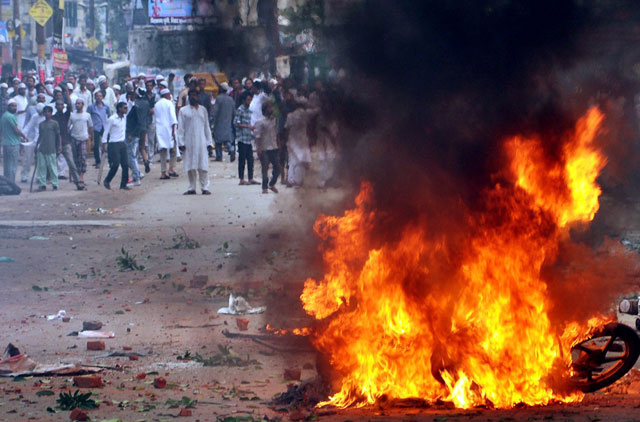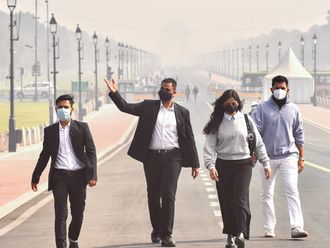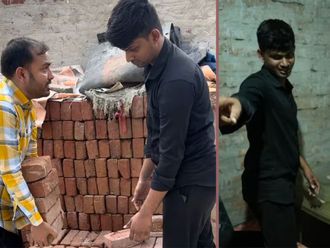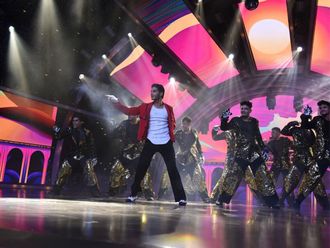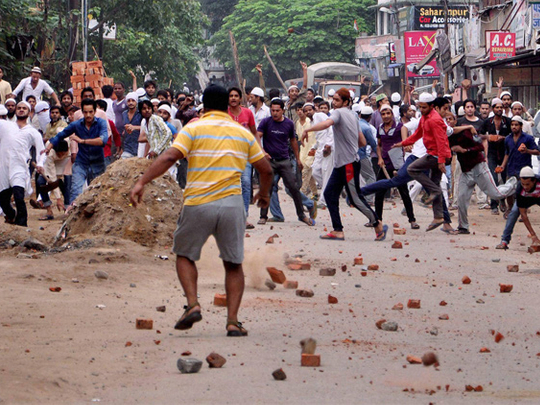
New Delhi: Communal flare-up has gripped India in the last two months since the Narendra Modi-led Bharatiya Janata Party (BJP) government came to power.
Sikhs of neighbouring Punjab and Haryana are on the verge of clash over formation of a separate Gurdwara management committee, two sects of Muslims clashed in the Uttar Pradesh capital Lucknow and now the Uttar Pradesh town Saharanpur is under curfew following armed clash between Muslims and Sikhs over a property dispute in which three people were killed and 20 injured.
“You cannot blame Modi for these incidents. We in BJP believe in secularism but the communal elements within the Muslim community are not at ease with formation of the BJP government and are trying to discredit Modi,” said BJP leader Jawahar Yadav, adding that the entire Muslim community cannot be termed as communal and responsible for the communal flare-up.
Yadav’s explanation notwithstanding, track record of some BJP leaders and those of its associates are far from encouraging. If the row created by the BJP legislative party leader K. Laxman over the Telangana government nominating tennis star Sania Mirza as the new state’s brand ambassador was disgraceful, Goa’s deputy chief minister Francis D’Souza’s statement that all Indians are Hindus was totally unwarranted. D’Souza termed himself as a Christian Hindu.
The radical Vishwa Hindu Parishad chief Praveen Togadia is back in the news again by calling for converting the secular India into a Hindu nation, while lawmakers of BJP’s ally Shiv Sena were in the news for force-feeding a fasting Muslim at New Delhi’s Maharashtra Sadan to express their displeasure over the quality of food served to them.
“These incidents are being blown out of proportion. I don’t think Modi has any role to play in these. As the prime minister of India he has to fulfil his promises on the economic front and he knows it well that communal tension would drive away foreign investors. As for the force-feeding issue, it’s possible that the Shiv Sena lawmakers did not know religious background of the canteen supervisor but their act, even if the supervisor was a Hindu, was condemnable. As a member of parliament you have to behave with dignity,” explained political commentator Vinod Mehta.
Dr Jolly Bansal, a heart specialist, is not convinced that Modi cannot be blamed for the recent communal flare up in the country, saying Modi’s charisma is on the wane and people would realise hollowness of his leadership quality.
“As an honest leader you need to be with the people and work for them. Modi is losing grip over the administration as his priorities are wrong. He seems more keen on foreign trips than taking up the issue of communal harmony,” Dr Bansal said.
TV journalist Rajan Sharma, however, does feel that the Muslims are being provoked. “No doubt there is fear psychosis amongst Muslims. The vested interest has scared them and the administration is also responsible. The other day I was at Jama Masjid and the barricading on a Ramadan evening which is like a festival in the walled city was as if the security personnel were preparing for a terrorist attack. They booked 4,700 persons, most of them Muslims, for traffic violations. I was told, when I asked them why they were targeting people of one particular community only, that they have instructions from the federal home ministry.
It may seem that the fundamentalist elements from all communities who were not getting the opportunities earlier have become active, though for different reasons and different objectives. Modi and his government will have to do lots of explanations if the communal flare-up is not controlled and those fanning it are not dealt with firmly.


